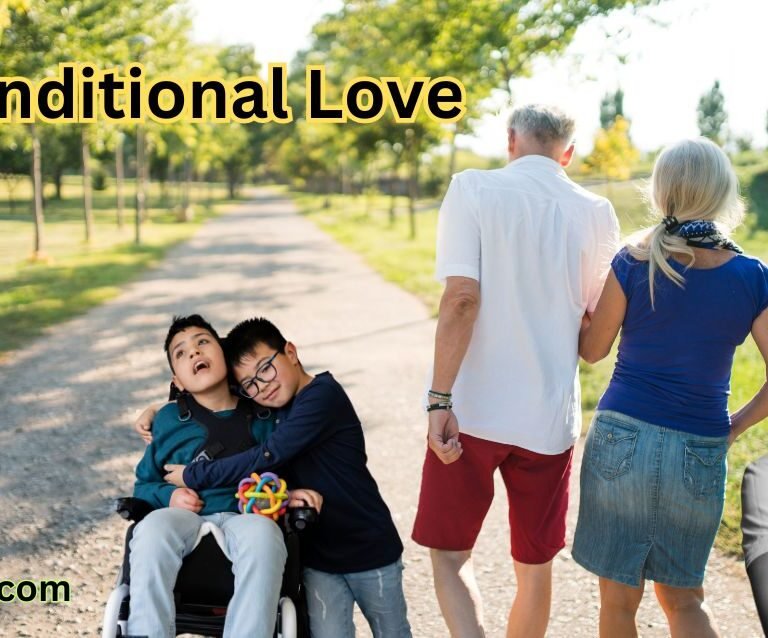Friendship is a fundamental human experience that transcends cultural boundaries and enriches our lives in myriad ways
Friendship is a fundamental human experience that transcends cultural boundaries and enriches our lives in myriad ways. At its core, a friendship is a mutual bond between individuals characterized by affection, trust, and support. This close relationship often provides emotional sustenance, a sense of belonging, and companionship throughout various life stages. Friends are more than just companions; they are confidants who share joys, challenges, and life’s pivotal moments.
There are different types of friendships that individuals may cultivate throughout their lives. For instance, childhood friendships often emerge during formative years, driven by shared experiences and exploration. These relationships can shape identity and foster emotional development. As people transition into adulthood, friendships may evolve into deeper connections, often characterized by mutual respect and understanding. Adult friendships may also be formed in professional environments, where shared goals and collaboration can lead to personal and professional bonds.
Another significant type of friendship is that which is maintained across distances or cultures. In today’s interconnected world, long-distance friendships facilitated by technology illustrate that physical separation does not diminish the essence of a strong bond. Cultural differences can also enhance friendships, as exposure to varied perspectives fosters appreciation and empathy. Regardless of background, friendships serve as vital support systems that enhance well-being and contribute to a sense of community.
In essence, friendship is much more than social interaction; it is a crucial component of the human experience that promotes personal growth, emotional resilience, and a sense of belonging. The display of camaraderie among diverse individuals reaffirms the universal nature of friendship, affirming its importance in navigating both life’s challenges and celebrations.
The Psychological Benefits of Friendships
Friendships play a pivotal role in shaping our psychological well-being and overall mental health. Numerous studies have indicated that maintaining close relationships can significantly boost self-esteem and promote a positive self-image. When individuals forge and nurture friendships, they often experience a profound sense of belonging, which acts as a vital component for emotional stability and personal fulfillment. Supportive friends provide encouragement and validation, helping one to recognize their worth and capabilities, ultimately leading to higher self-esteem.
Moreover, friendships serve as a powerful antidote to anxiety and stress. Engaging in meaningful interactions can create a safe space, where individuals can share their fears and concerns without judgment. This open dialogue not only alleviates feelings of loneliness but also fosters resilience. Friends often aid in developing coping strategies that contribute to better emotional regulation and a healthier response to life’s challenges. The camaraderie and connection established through friendship can diminish feelings of isolation, which are often linked to anxiety disorders and depression.
Furthermore, friendships can enhance one’s overall mental well-being by offering a sense of purpose and belonging. People are inherently social beings, and the bonds formed through friendships fulfill the fundamental human need for connection. This interconnectedness can lead to increased happiness, as friendships are often associated with shared experiences and joy. Engaging in activities with friends can lead to laughter and positive emotions, which are crucial for maintaining mental health. Consequently, the psychological benefits derived from friendships extend to various facets of life, including improved mood, increased motivation, and a surge in overall life satisfaction.
Friendship and Emotional Support
Friendship plays an integral role in providing emotional support, which is crucial for maintaining psychological well-being. Friends are often regarded as the pillars that hold us up during difficult times, offering reassurance and understanding when we feel vulnerable. During periods of stress or crisis, having a trustworthy friend to confide in can significantly alleviate feelings of anxiety and isolation. The empathy shared between friends fosters a sense of security, allowing individuals to express their emotions without fear of judgment.
Countless studies have highlighted the positive impact of friendships on emotional resilience. Friends can serve as a sounding board in times of crisis, where they actively listen and validate our feelings. This type of emotional support not only helps in processing our thoughts and emotions but also encourages us to view challenges from a different perspective. The comfort derived from knowing that someone is there to listen and understand provides a reprieve from emotional turmoil, promoting a healthier coping mechanism.
Moreover, friendships often enrich our emotional vocabulary, teaching us to articulate our feelings more effectively. Through shared experiences, friends inadvertently guide each other in developing better insight into their emotions. This mutual exchange facilitates emotional intelligence, benefitting both parties and strengthening the bond of friendship. In a world where loneliness can sometimes feel overwhelming, nurturing friendships can provide a sense of belonging and purpose. It is this interconnectedness that significantly enhances our capacity for empathy and compassion, qualities that are essential not only in friendships but in all human interactions.
In conclusion, the emotional support derived from friendships is invaluable. The reassurance, empathy, and listening offered by friends contribute to our overall emotional resilience, ultimately illustrating the profound importance of these relationships in our lives.
Friendships and Health Outcomes
The significance of friendships extends beyond emotional support; it plays a crucial role in physical health outcomes. Numerous studies suggest that individuals with strong social networks tend to experience better overall health and longevity. According to research published in the journal “Health Psychology,” robust friendships can be associated with lower rates of chronic disease and an enhanced immune response. This correlation implies that social bonds are integral to not only mental well-being but also physical health.
One of the primary ways friendships influence health is through lifestyle choices. Individuals who engage in healthy relationships are often more likely to adopt beneficial behaviors, such as regular exercise, balanced nutrition, and quitting smoking. A study from the “American Journal of Public Health” demonstrated that people with a close circle of friends who engage in healthy habits are more inclined to follow suit. This social modeling creates an environment where individuals can motivate one another toward improved health outcomes.
Moreover, the psychological benefits of friendships also contribute to physical health. Strong social ties can reduce stress levels, which are known to adversely affect health. High stress is linked to various health issues, including cardiovascular disease and weakened immune function. Friends can provide emotional support during difficult times, thereby mitigating stress and its associated health risks. The “Journal of Happiness Studies” highlights that happiness derived from friendships translates into physical health benefits, reinforcing the notion that positive social interactions are vital for overall wellness.
In summary, the interplay between friendship and health is multifaceted, with strong social connections fostering healthier lifestyles and enhancing longevity. As we cultivate meaningful friendships, we are not only enriching our emotional lives but also paving the way for improved physical health. The evidence points to the undeniable fact that nurturing friendships can lead to a healthier and perhaps longer life.
The Role of Friendship in Social Development
Friendships play a pivotal role in the social development of individuals, particularly in building essential life skills that contribute to personal growth and emotional intelligence. Through meaningful interactions with peers, individuals learn to communicate effectively, which is vital for fostering relationships, both personal and professional. Effective communication encompasses not only verbal exchanges but also non-verbal cues, active listening, and understanding others’ perspectives. These skills are refined through regular engagement with friends, creating a foundation for future interactions.
Furthermore, friendships serve as a safe space for practicing conflict resolution. Disagreements are an inevitable part of any relationship, and navigating these challenges alongside friends enhances one’s ability to approach conflicts in a healthy manner. Learning to address disputes, negotiate, and compromise builds resilience, preparing individuals for more complex situations they may encounter in various aspects of life. The practice of resolving issues with friends allows for the development of strategies that are essential for effective teamwork and collaboration in later stages of life.
Empathy, the ability to understand and share the feelings of others, is another crucial skill nurtured through friendships. As individuals connect with friends, they are often exposed to a variety of perspectives and experiences. This exposure cultivates an understanding of different emotions and viewpoints, enhancing one’s capacity for compassion. Friends often provide emotional support, allowing individuals to express their feelings in a nurturing environment, reinforcing the value of being in tune with the emotions of others. Thus, the experience of friendship is instrumental in shaping socially adept individuals who contribute positively to their communities.
Overcoming Challenges in Friendships
Friendships, while often rewarding, can also present a range of challenges that may create rifts between individuals. Common issues such as misunderstandings, jealousy, and the inevitable drift that can occur over time often test the resilience of these bonds. Understanding and addressing these challenges is essential for maintaining healthy and fulfilling friendships.
Misunderstandings can arise from miscommunication or differing expectations. One party may assume their friend knows how they feel or what they need, leading to frustration when those assumptions prove incorrect. To overcome this, open and honest communication is paramount. Taking the time to discuss feelings, expectations, and boundaries can prevent assumptions from becoming obstacles. It is often beneficial to address any perceived slights immediately before they escalate into more significant issues.
Jealousy, another common challenge in friendships, typically stems from insecurity and comparison. It is not unusual for individuals to feel envious when they perceive a friend experiencing success or happiness. To counteract jealousy, one must practice self-reflection and be mindful of their own worth and accomplishments. Strengthening a friendship in these instances can be achieved by celebrating each other’s successes and offering support instead of succumbing to competitive feelings.
As life progresses, individuals may naturally grow apart. Changes in interests, lifestyles, or priorities can create distance. Navigating this can be challenging, but it offers an opportunity to reassess the friendship’s dynamics. Consider scheduling regular catch-ups or finding new interests to share in order to rekindle the connection. Recognizing that friendships evolve and may require adjustments can lead to stronger, more resilient ties over time.
By acknowledging and addressing these challenges, friendships can become a source of strength and support, fostering deeper connections that stand the test of time.
The Impact of Technology on Friendships
In recent years, the role of technology in shaping friendships has become increasingly significant. Social media platforms, messaging applications, and other forms of digital communication have transformed how individuals connect and maintain relationships. On one hand, these technological advancements provide opportunities for people to establish and nurture friendships that might not have been possible otherwise. For instance, individuals can easily connect with like-minded peers from diverse geographical locations, allowing for the formation of global friendships that transcend cultural and national boundaries.
However, the impact of technology on friendships is not wholly positive. While digital communication facilitates instant interactions, it can sometimes result in shallow connections that lack the depth and intimacy typically associated with in-person relationships. The convenience of texting or social media interactions often leads to a decline in face-to-face encounters, which are essential for solidifying and fostering meaningful bonds. This shift may contribute to feelings of isolation and loneliness, as individuals might find themselves surrounded by virtual connections yet lacking strong, supportive friendships offline.
Moreover, the phenomenon of “virtual friendships” has emerged, wherein individuals primarily engage with friends online. While these relationships can provide emotional support and companionship, they also pose challenges. The absence of physical presence can hinder the full experience of friendship, as non-verbal cues, which play a crucial role in effective communication, are often lost in digital interactions. Additionally, the online space can expose individuals to negative experiences such as cyberbullying or unrealistic comparisons, thereby impacting one’s self-esteem and overall well-being.
Ultimately, understanding the dual-edged nature of technology’s influence on friendships is essential. It is imperative to strike a balance between leveraging these tools to connect with others and ensuring that core elements of traditional friendships, such as trust, reciprocity, and emotional intimacy, are preserved. By doing so, individuals can enjoy the benefits of modern technology while maintaining the richness of their interpersonal relationships in the contemporary landscape.
Friendships Across the Lifespan
Friendships play a pivotal role in human development, evolving through various stages of life, each characterized by distinct dynamics and significance. In childhood, friendships often form around shared interests, they tend to be uncomplicated and are typically based on proximity, such as being classmates or neighbors. These early friendships help children learn essential social skills, such as cooperation, empathy, and conflict resolution. As children progress through their formative years, these connections often shift, reflecting an increasing complexity in interpersonal relationships.
During adolescence, friendships take on newfound significance. Teenagers frequently seek deeper connections based on shared values, interests, and emotional support. It is during this period that individuals often experience their first tastes of loyalty, betrayal, and identity formation. These peer relationships can influence personal development, risk-taking behavior, and self-esteem, illustrating the profound impact friendships can have during this time. Moreover, friendships in adolescence often serve as a buffer against the pressures of academic and social expectations.
Moving into adulthood, friendships may shift again. Many adults struggle to maintain friendships due to busy schedules, family commitments, or career obligations. However, those bonds that do persist often deepen and evolve, reflecting shared life experiences and mutual support. Friendships in adulthood can be both nurturing and instrumental, providing crucial emotional support during significant life changes such as marriage, parenthood, or professional challenges. Additionally, they can contribute greatly to an individual’s overall mental well-being and life satisfaction.
As individuals enter late adulthood, the dynamics of friendship may change once more. Many individuals experience loss during this time, making existing friendships even more vital for emotional support and companionship. Friendships can alleviate loneliness, foster a sense of belonging, and enhance quality of life, demonstrating that the value of friendship is undeniable across the entire lifespan.
Celebrating and Maintaining Friendships
Friendships are a vital component of our emotional and social well-being. They provide companionship, support, and joy. To celebrate and maintain these precious relationships, it is essential to engage in practices that reinforce the bonds we share with our friends. A few practical methods can be adopted to ensure that friendships remain strong and fulfilling.
Regular check-ins are fundamental to staying connected. Setting aside time to catch up, whether through phone calls, texts, or in-person meetings, enables friends to share updates about their lives. These conversations help foster deeper connections and promote emotional intimacy, allowing friends to feel valued and appreciated. It’s often the small gestures, like sending a quick message to ask about someone’s day, that can make a significant impact.
Sharing experiences is another effective way to celebrate friendships. Engaging in activities together—such as attending events, traveling, or simply trying out new hobbies—creates lasting memories that can strengthen the bond between friends. These shared moments cultivate a sense of belonging and joy, reinforcing the importance of friendship in our lives. Consider planning a regular outing or special surprise; these experiences not only bring fun but also reinforce trusting connections.
Finally, expressing appreciation plays a critical role in maintaining friendships. Taking the time to acknowledge a friend’s support or remembering special occasions can greatly enhance the relationship. Simple thank-you notes, thoughtful gifts, or just verbal affirmations can go a long way in conveying gratitude and love. When friends feel recognized and cherished, their bond grows deeper, enriching the fabric of their relationship.
In conclusion, investing time and effort into nurturing friendships through regular communication, shared experiences, and heartfelt appreciation can lead to meaningful, lasting relationships that enhance our lives in countless ways. By consciously celebrating and maintaining these connections, we contribute to a more enriching and supportive social environment.









